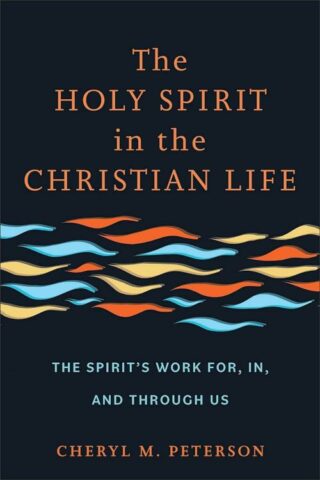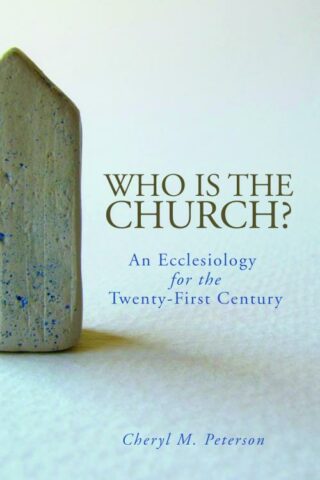Cheryl Peterson
Showing all 2 resultsSorted by latest
-
Holy Spirit In The Christian Life
$24.99The Holy Spirit in the Christian Life offers a brief account of the doctrine of the Holy Spirit, focusing specifically on the question of the person and work of the Spirit in the Christian life.
Lutheran theologian Cheryl Peterson identifies three key movements of the Christian life, showing the Spirit’s role in each: justification (God the Holy Spirit working for us), sanctification (God the Holy Spirit working in us), and mission (God the Holy Spirit working through us). Peterson explores scriptural and doctrinal perspectives on the person and work of the Holy Spirit–especially from churches with Reformation roots–in view of contemporary spiritual movements, including the spiritual-but-not-religious and the Pentecostal and charismatic movements. In addition, she explores the means of the Spirit’s work through Word, sacrament, and spiritual gifts.
This book offers a fresh look at the work of the Holy Spirit in the life of the church today. It is ideal for seminarians and working pastors.
Add to cartin stock within 3-5 days of online purchase
-
Who Is The Church
$26.00Many congregations today are beset by fears, whether over loss of members and money, or of irrelevancy in an increasingly pluralistic society. To counter this, many congregations focus on strategy and purpose-what churches “do”-but Cheryl Peterson submits that mainline churches need to focus instead on “what” or “who” they are-to reclaim a theological, rather than sociological, understanding of themselves.
To do this, she places the questions of the church’s identity and mission into a conversation with the primary ecclesiological paradigms of the past century: the neo-Reformation concept of the church as a “word event” and the ecumenical paradigms of the church as “communion.” She argues that these two paradigms assume a context of cultural Christendom that no longer exists-focused on the church that is gathered-rather than the missional church that is sent out.
Peterson suggests instead that we understand the church as a people created by the Spirit to be a community, and that we must claim a narrative method to explore the church’s identity-specifically, the story of the church’s origin in the Acts of the Apostles. Finally, here is a way of thinking of church that reconciles the best of competing models of church for the future of mainline Protestant theology.
Add to cartin stock within 3-5 days of online purchase


